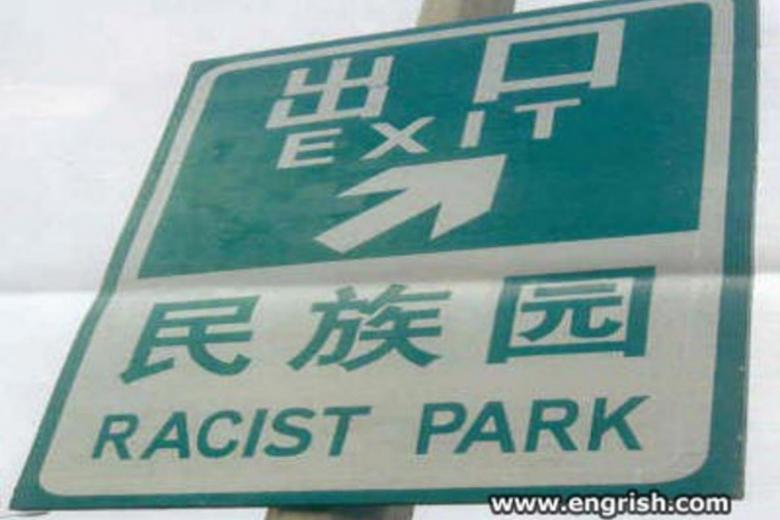BEIJING - China has had enough of bad English signs and the jokes that come with them.
A new standard for English translations has been issued and it is to take effect by Dec 1.
The standard aims to improve the quality of English translations in 13 public arenas, including transportation, entertainment, medicine and financial services, People's Daily reported on Wednesday (June 21).
The guidelines prioritise correct grammar, the paper said, and warns against using rare words and expressions.
The translations should not "contain content that damages the images of China or other countries", while discriminatory and "hurtful" words have been banned.
Authorities have provided sample translations for reference, and warned against direct translation, People's Daily reported.
"The standard will provide linguistic support for the country's reform and opening policies," said an official announcement.
The report pointed out that the Park of Ethnic Minorities used to be translated as "Racist Park", which was offensive to many.
That is just one of many badly translated public signs, menu items and shop names that have generated hilarity, to the amusement of English speakers.
Some examples include calling an Accessible or handicapped toilet a "Deformed Man Toilet" and direct translations that alert passers-by of an "Execution in Progress" when they mean "Under Construction".
But some are sad to see them go.
Mr Ray Kwong, senior adviser to the University of Southern California's US-China Institute told the South China Morning Post: "Bad translations on signage, menus and whatnot have been part of China's charm since I first visited 30-something years ago."

